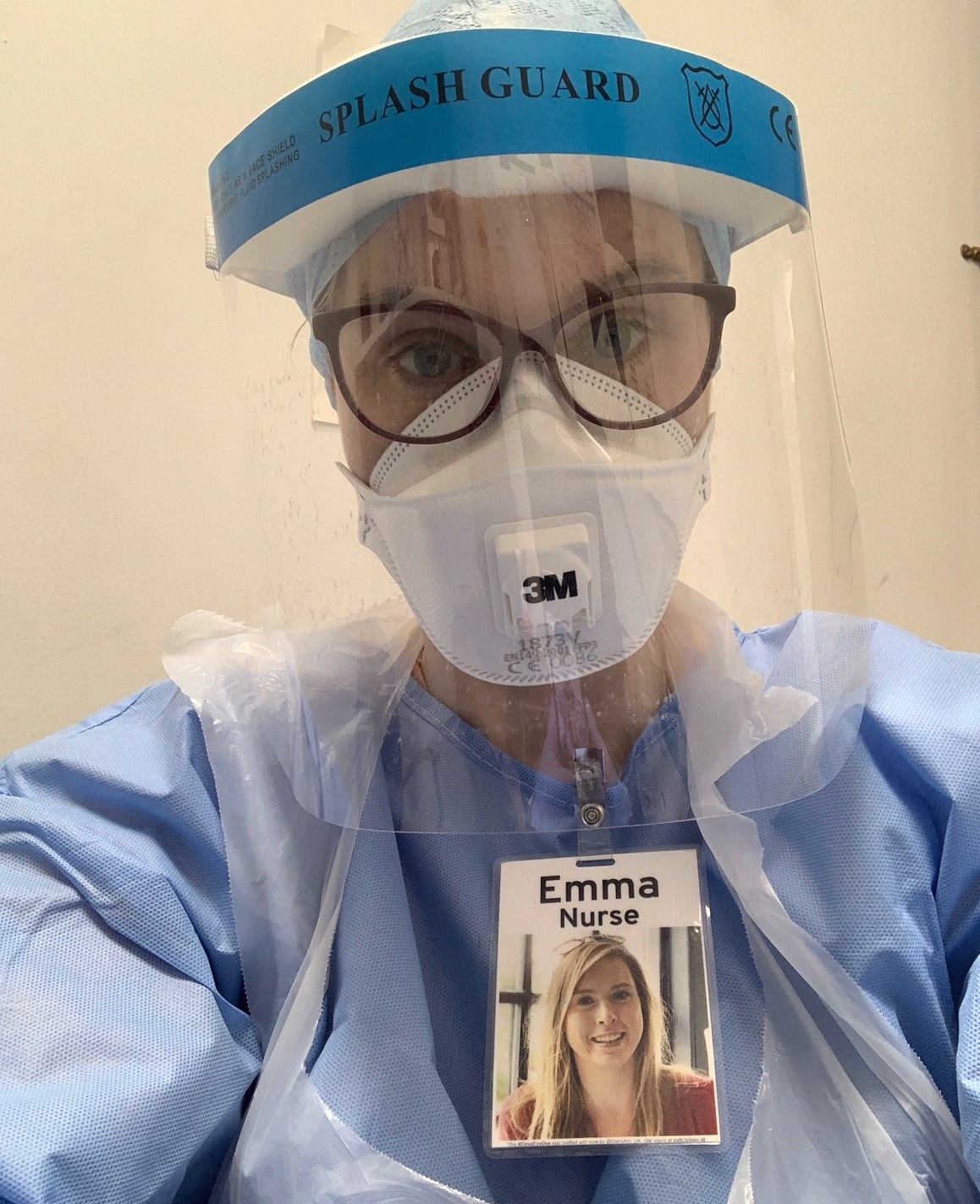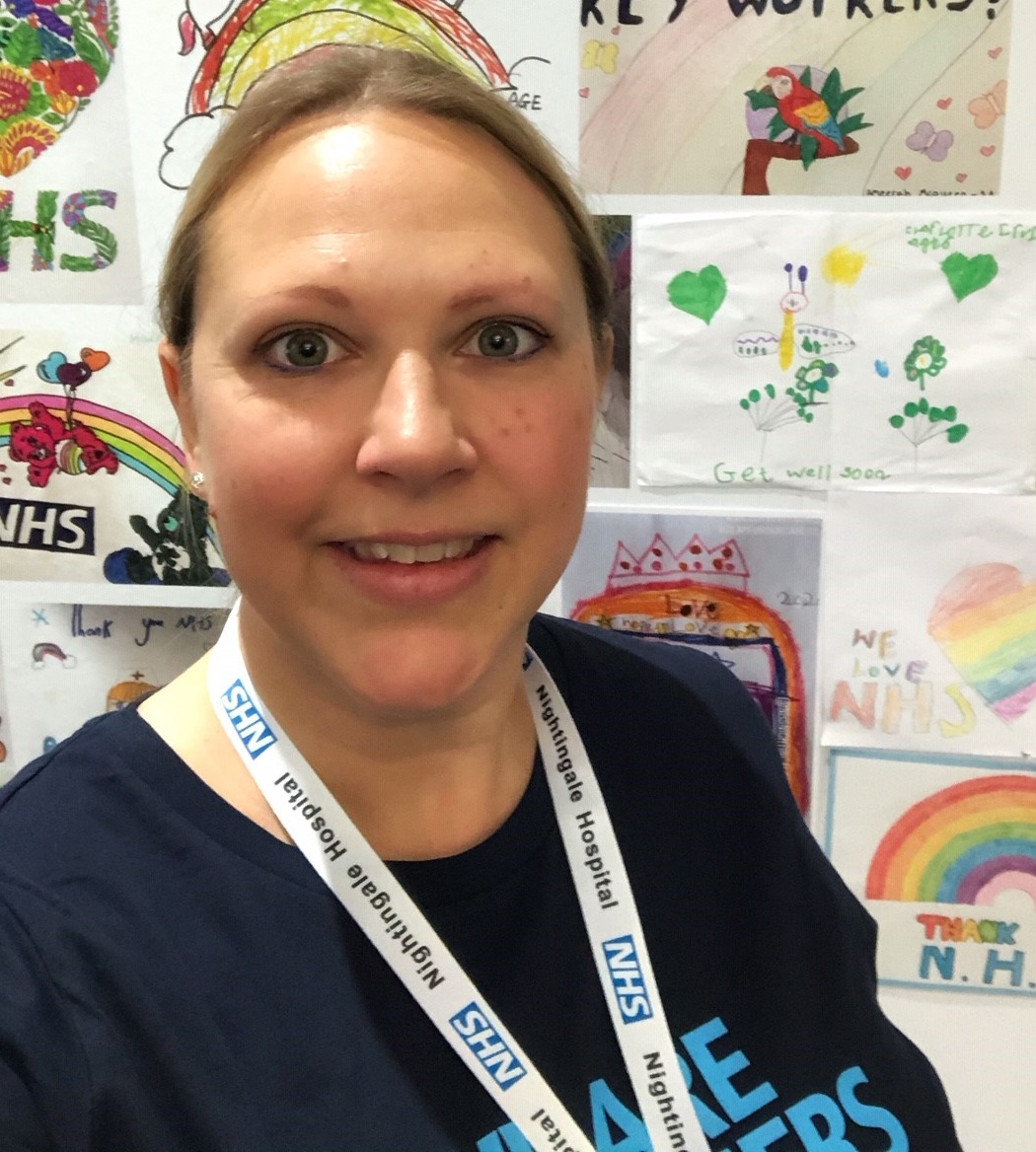Specialist organ donation nurses share their experiences of caring for COVID-19 patients
Having volunteered to return to the frontline of the NHS COVID-19 response, London’s organ donation nurses stepped in to offer valuable extra support to some of the sickest patients and their loved ones.
A number of NHS Blood and Transplant’s specialist organ donation nurses volunteered to use their skills in Intensive Care Units (ICUs) across the capital and in the NHS Nightingale Hospital. This followed a national NHS plea for extra support during the peak of the coronavirus outbreak.
Highly trained to have difficult, end of life conversations with families in their normal line of work, many of the specialist organ donation nurses utilised their skills to communicate vital updates to families about the wellbeing of their loved ones.
As the NHS marks its 72nd birthday, the nurses have been reflecting on their experiences of caring for seriously ill COVID-19 patients.
A source of support
Emma Leahy is a Specialist Nurse – Organ Donation and member of the London Organ Donation Services team. She volunteered to work on the front line in Northwick Park Hospital during the pandemic.
 “At first I was providing relief for doctors and training those who don’t normally work in intensive care how to read ventilator charts,” said Emma.
“At first I was providing relief for doctors and training those who don’t normally work in intensive care how to read ventilator charts,” said Emma.
“But as time went on, we realised that patients were missing the family connection from their care. This is such a vital part of any recovery.
“An important part of my organ donation role is to support families of loved ones in intensive care. This involves having conversations regarding end of life care. I’m grateful I could offer support and guidance to colleagues that may not be so used to having those types of conversations.”
“A really rewarding part of the role was offering virtual visits to patients’ families who couldn’t physically be with them because of the social distancing measures. For the patients that were awake, seeing their families on video chat was the boost they needed to kickstart their recovery.
“Not being able to see loved ones face to face during such a difficult time is heart-breaking for families, but knowing I was there offered some comfort. Even the smallest gestures, such as hand holding or saying a prayer meant everything to them.
“In some cases, people asked for hair locks and handprints of family and friends they knew they wouldn’t see again.”
Keeping families connected
Lucy Dames volunteered as part of the family liaison team who are the link between patients and their loved ones.
 She said: “I have spent the last 12 weeks working in the Excel Nightingale in London as a Family Liaison Officer, an experience I will never forget.
She said: “I have spent the last 12 weeks working in the Excel Nightingale in London as a Family Liaison Officer, an experience I will never forget.
“I had a desire to help and support where needed so didn’t hesitate to get involved.
“We provided daily telephone calls to all families, facilitating end-of-life visits (following the strict rules) and being the go-between for clinicians and families.
“Supporting bereaved families is a normal part of my role through organ donation but what I found challenging was having the majority of conversations, including breaking bad news conversations, over the phone.”
“The social distancing measures made it very difficult. Some dying patients couldn’t be visited because their relative was themselves isolating. This meant we were the go-between for family’s final words to their loved one and transcribing some of the messages was quite upsetting.”
Betsy Bassis, Chief Executive at NHS Blood and Transplant, said: “We are immensely proud of the specialist organ donation nurses who have gone above and beyond in how they have responded to this pandemic.
“They have been quietly doing this work throughout the pandemic despite it not being their day-job. Some staff have isolated from their families for months in order to step into these frontline roles and they’ve done so with great humility and courage. I thank them for their team spirit and extraordinary commitment to the extremely difficult job of providing end of life COVID-19 care.”
“I’ve no doubt that the extra care by our specialist nurses has come as a valued comfort to many patients and their families in these darkest of days.”
The Specialist Nurses – Organ Donation usual role involves supporting families through the organ donation process and explaining the new organ donation law, which came into effect on the 20th May.
Under the new law, all adults in England are considered as having agreed to donate their own organs when they die unless they have recorded a decision not to donate (known as ‘opting out’), have told their family they don’t want to donate or are in one of the excluded groups.
